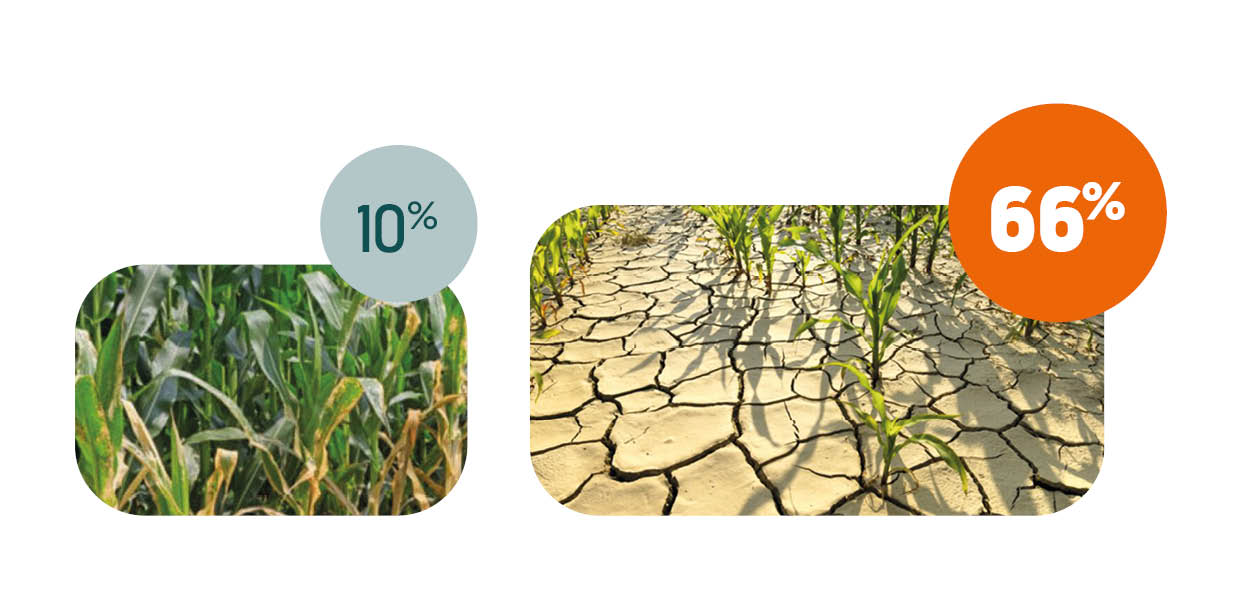
You are using an outdated browser. Please upgrade your browser to improve your experience.

You are using an outdated browser. Please upgrade your browser to improve your experience.
Abiotic stress, the negative impact on crops caused by environmental and non-living factors, constitutes a major limitation to agricultural production. Phenomena such as drought, extreme heat or cold, excess salinity, soil mineral deficiency and soil toxicity are among the most impactful environmental stresses for crops from an ecological and economical point of view. The impact of this factor, that is hardly ever absent in crop production, is even worsening in many regions of the world due to the effect of climate change, through more frequent episodes of extreme heat, increased drought conditions, and desertification, as well as more frequent storms and flooding.
The economic damage due to abiotic stress is severe and often underestimated. For corn, one of the most important commodities worldwide, abiotic stress bears 66% of the yield loss, compared with an estimated contribution of biotic stress (that is to say, the negative effect of pests and parasites) of only 10%. For soybean and wheat, the abiotic contribution to yield loss rises up to 69 and 82% respectively.* In the light of this, the topic of abiotic stress is gaining more and more attention, and, not by chance, the resilience increase to climate change-induced stresses in crops is often mentioned among the objectives of regenerative agriculture. However, this attention does not necessarily lead to the adoption of targeted agricultural practices: while farmers normally use crop protection solutions to reduce losses due to biotic stress, solutions that address abiotic stress are often still overlooked.

Address the stress is project dedicated to our Biologicals portfolio that promotes the sharing of knowledge on abiotic stress through the organization of targeted activities and dedicated forums.
By means of discussions and deep dives led by subject matter experts, we aim to increase the awareness and knowledge of farmers on this issue and to promote the use of targeted solutions to help crop minimize the damage due to abiotic stress, with a particular focus on the use of biostimulants.